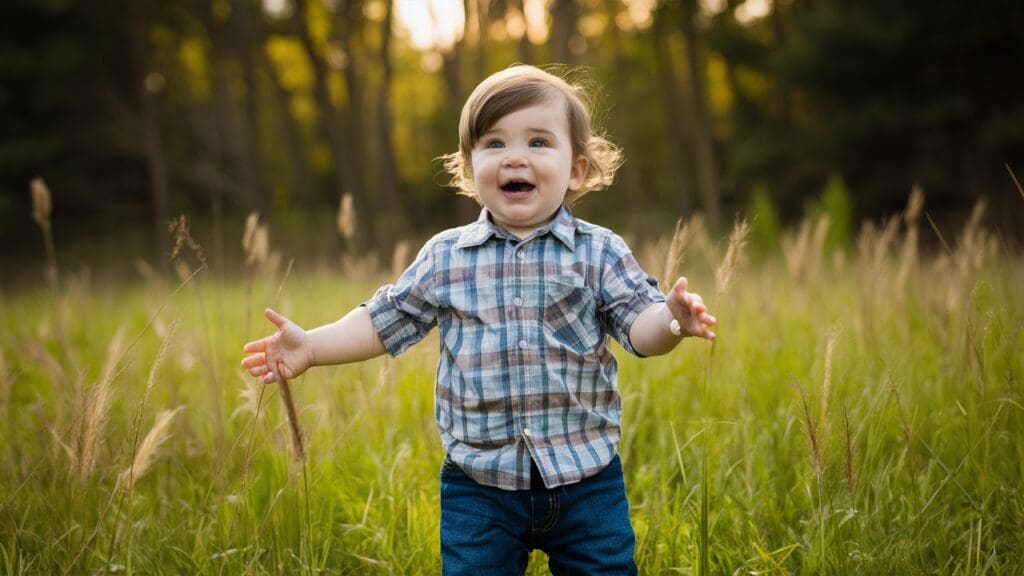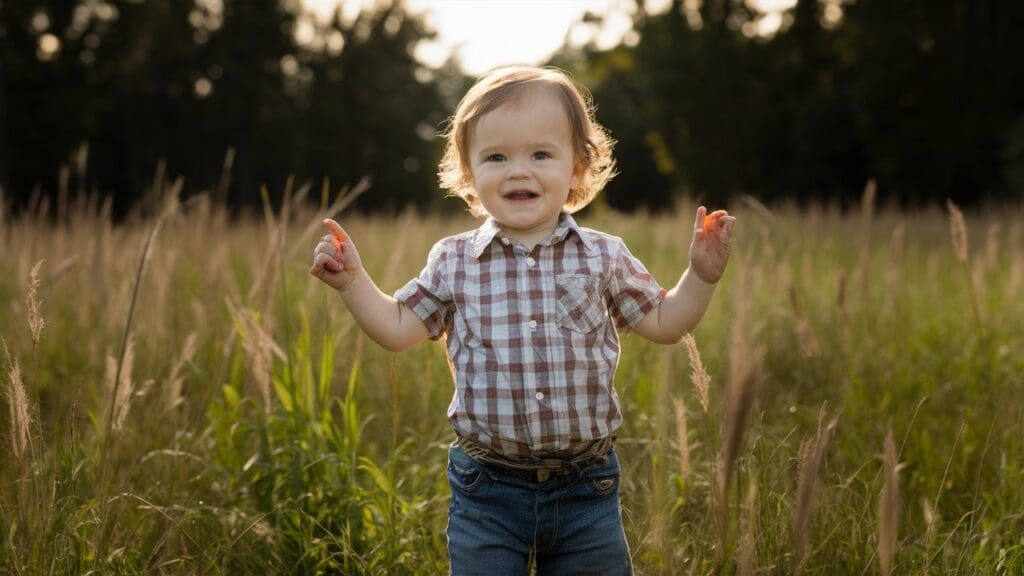50+ Toddler Interview Questions to Spark Laughter and Capture Memories
Have you ever sat down and truly interviewed your toddler? It’s a heartwarming (and often hilarious) way to capture their thoughts, quirks, and personality at this fleeting stage.
These toddler interview questions can help preserve childhood moments while also encouraging language development and parent-child bonding.
Whether you’re filling out a memory book, making a time capsule, or just having a giggle-filled afternoon, these questions will create sweet keepsakes for years to come.
Heads up: This post may include affiliate links. As an Amazon Associate, I earn from qualifying purchases—at no extra cost to you. Full privacy policy and disclosure here.

Why Ask Toddler Interview Questions?
Asking your child questions is more than a cute activity—it’s a developmental tool.
- Boosts language skills: Toddlers learn how to express thoughts, recall details, and answer open-ended prompts.
- Builds connection: Taking time to listen to your child’s perspective creates trust and strengthens your relationship.
- Preserves memories: Their answers can change drastically year to year—capturing them now creates adorable snapshots in time.
- Encourages emotional expression: Some questions invite toddlers to talk about feelings, preferences, and opinions.
If you’ve ever found your toddler stalling bedtime with endless questions, turning the tables with toddler interview questions can be a fun, relaxing ritual instead. (Related: Quick Solutions for Toddler Bedtime Stalling)

50+ Fun Toddler Interview Questions
Here’s a comprehensive list of toddler interview questions you can print, customize, or rotate throughout the year. Pick a few or go through the whole list!
🎂 Getting to Know You
- What’s your name?
- How old are you?
- When is your birthday?
- What color are your eyes?
- What color is your hair?
- What makes you special?
🍕 Favorites
- What’s your favorite food?
- What’s your favorite color?
- What’s your favorite toy?
- What’s your favorite show?
- What’s your favorite song?
- What’s your favorite animal?
- What’s your favorite thing to do?
✅ Tip: Keep a toddler-friendly notepad on hand like the Crayola My First Scribble Pad so they can draw their answers too!
👨👩👧 All About Family
- Who do you love?
- What does Mommy do?
- What does Daddy do?
- What’s your favorite thing to do with your family?
- Do you have any siblings?
(If you’re prepping for travel, check out our Potty Training Travel Tips for Toddlers to stay stress-free while on the road.)
🧠 Silly and Creative
- If you had a superpower, what would it be?
- What would you do if you could fly?
- If you could make a new animal, what would it look like?
- What would you buy if you had a million dollars?
- If your teddy bear could talk, what would it say?
💡 Try recording the answers with this kid-friendly digital voice recorder to replay their answers later—perfect for memory boxes.
🏡 About the World
- Where do you live?
- What’s your house like?
- Where would you like to go on a trip?
- Do you like going to the grocery store?
- What’s your favorite thing to do outside?
😄 Feelings and Personality
- What makes you happy?
- What makes you sad?
- What makes you laugh?
- What makes you scared?
- What do you do when you’re mad?
🌈 Check out Exploring the Benefits of Ice Play for Toddlers for a sensory activity that helps regulate emotions!
🧁 Imaginative Fun
- What would you make if you had a magic wand?
- What would you name your pet dinosaur?
- If you were a superhero, what would your name be?
- What’s your silly face?
- What sound does a robot make?
📚 About Today
- What did you eat today?
- What did you do this morning?
- What’s the best part of your day?
- What’s the silliest thing you’ve done today?
Memory-Keeping Ideas for Toddler Interviews
Use these ideas to preserve the joy of your child’s adorable responses:
- ✏️ Printable Worksheets – Use a toddler-themed keepsake like Melissa & Doug’s My First Calendar to log their answers.
- 📷 Photo Album Pages – Include a printed sheet of their interview along with pictures taken that day.
- 📹 Video Interviews – Record once a year (like on birthdays) and create a “growing up” video montage.
- 🎁 Time Capsule – Include a copy of the interview and other favorites in a keepsake box. Related: 13 Easter-Themed Sensory Bins for Toddlers for another fun item to include.
FAQ About Toddler Interview Questions
What age is best to start toddler interviews?
Ages 2 to 3 is a great time to start. Your child might not answer every question clearly, but their responses will still be memorable and charming.
How often should I ask these questions?
Consider doing it on birthdays, at the start of a school year, or every 6 months. You’ll love seeing how the answers evolve!
Should I write or record their answers?
Both! Writing captures the exact wording and pronunciation, while video or voice recordings preserve tone and expressions.
What if my toddler won’t answer?
That’s okay! Keep the mood light. Use props, stuffed animals, or even the Fisher-Price Laugh & Learn Smart Stages Chair to create a playful setup.
Can I make this a family tradition?
Absolutely! You can even create a yearly scrapbook or family quote book. (Related: How to Keep Your Child From Bolting Out of the Stroller—because you’ll want them to sit still during interviews!)
Final Thoughts: Why Toddler Interview Questions Are Worth It
As a mom of three, I’ve asked these questions dozens of times—and each round gives me something to laugh about, cry over, or tuck away in a keepsake drawer. These toddler interview questions offer a beautiful window into your child’s personality and thought process.
Whether your toddler says their favorite food is “soap” or insists they’re 97 years old, you’ll cherish these moments forever.
📌 Save This Post for Later
Don’t forget to pin this post so you can return to it next year!
👉 Create a yearly tradition with toddler interview questions and watch your child grow through their own words.
💬 Let’s Chat
Have you tried a toddler interview before? Share the funniest answer your child has given in the comments!
